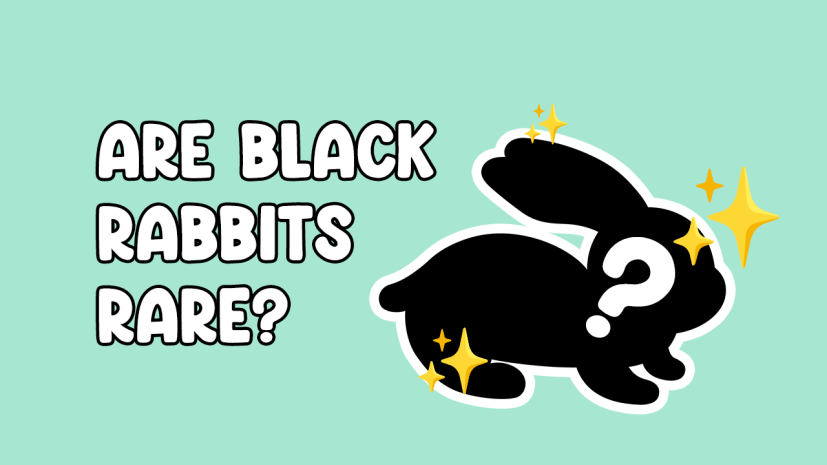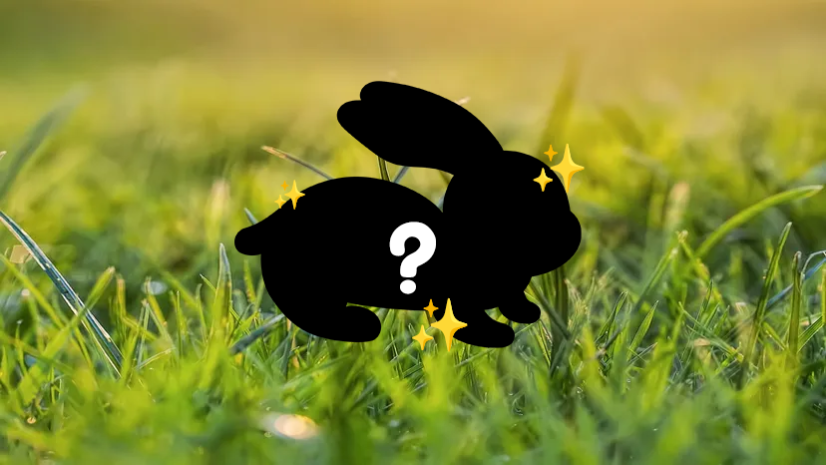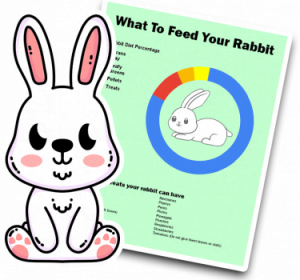
Amongst all the different breeds and colors, one specific variation stands out – the black rabbit. Their coat color can range from the deepest ebony to soft sable, but their rarity makes them truly captivating. Are black rabbits rare? In this post, we will delve into the world of rabbit genetics and shed light on the prevalence of black rabbits in the wild and in our homes.
Wild Black rabbits are indeed relatively rare; however, Domestic Rabbits are fairly common. This rarity is predominantly due to specific genetic factors. Like humans and other animals, rabbits have genes determining their coat color. The color black in rabbits results from a dominant gene, meaning it will be black if a rabbit receives this gene from even one parent.

However, a rabbit’s environment also plays a significant role in the color of its coat. For instance, lighter-colored rabbits have a better chance of blending in with their surroundings in the wild, making them less likely to be prey. This survival advantage has led to a higher prevalence of lighter-colored rabbits, making black rabbits less common.
Their environment and predators influence the occurrence of black rabbits in the wild. As previously mentioned, black rabbits are less likely to blend in with their surroundings, which puts them at a higher risk of predation. Despite this, they still occur in the wild, albeit infrequently.
According to a study conducted by the University of Edinburgh, black rabbits were spotted in the wild areas of Northeast Fife, Scotland. This is a rare occurrence, with black wild rabbits accounting for less than 4% of the total rabbit population in the area.
In contrast to their rarity in the wild, black rabbits are more commonly found as pets. Many rabbit breeds, including the Havana, Mini Rex, and Dutch, can produce black offspring. Pet owners often seek out black rabbits for their unique appearance and the aura of mystique they bring.
Whether you’re looking to adopt a black rabbit from a rescue organization or purchase one from a reputable breeder, remember that their care requirements are the same as rabbits of any other color. Their diet, grooming, housing, and healthcare needs remain prioritized over their intriguing coat color.
Diving into rabbit genetics can help us understand why black rabbits are rare. In rabbits, two primary genes control the majority of the coat color. These are the ‘A’ gene, which influences the distribution of color on the rabbit’s fur, and the ‘B’ gene, which controls the color itself. The ‘B’ gene is what makes a rabbit black. It is a dominant gene, which means that if a rabbit inherits this gene from either parent, it will be black.
However, to be entirely black, a rabbit must also inherit specific versions of other genes that influence color intensity and pattern. This complex interplay of multiple genes makes the occurrence of a completely black rabbit relatively rare.
A common breed of black rabbit is the Mini Rex. Known for its velvety fur and small size, the Mini Rex comes in various colors, including black. These rabbits are also popular pets, with their calm demeanor and low maintenance needs.
While black rabbits are less common in the wild, some rabbit breeds are known for their black variants. The Havana rabbit, for instance, was named for its mink-like fur that originally only came in rich chocolate. Over time, however, other colors were introduced, including black. Black Havanas are now a popular choice for both shows and as pets.
If we consider breed colors and categorize them, it’s clear that rabbits with a Black Gene are fairly popular. We have created a collection of data that roughly attempts to categorize these into %’s a total of 45 colors:
Based on this categorization, we can see that black-based colors are the most common, appearing in about 31% (14 out of 45) of the primary rabbit coat colors and patterns. The other colors category is also quite common, appearing in about 38% (17 out of 45) of the primary rabbit coat colors and patterns. The other color categories (brown/chocolate, blue, white, red/orange/fawn) each comprise a smaller portion of the primary rabbit coat colors and patterns.
Please note that this is a rough categorization, and each color category’s prevalence can vary based on many factors, such as locale and breeding.
In many cultures, rabbits, in general, are seen as symbols of good luck. This belief stems from ancient times and carries through to modern-day superstitions. For instance, the phrase “rabbit, rabbit, rabbit” is often spoken first thing in the morning on the first day of the month to ensure good luck for that month.
Black rabbits are often viewed with an added layer of symbolism due to their rare and distinctive coloration. In certain cultures, black animals are considered to bring prosperity, abundance, and even protection against evil spirits. They are seen as mystical creatures connected to the unknown, making them an emblem of the extraordinary.

For example, in Japanese mythology, there’s a story of a black rabbit of Inaba who was wise and fortunate. The story involves the black rabbit successfully tricking a group of sharks, ultimately showcasing the rabbit’s luck and cunning.
It’s also worth noting that luck and symbolism associated with animals can vary greatly among different cultures and belief systems. While black rabbits are considered lucky in some contexts, other cultures might not attribute the same level of luck or symbolism to them.
However, believing in the good luck of black rabbits (or any other pet) should never overshadow the commitment and responsibilities of pet ownership. The care and well-being of the animal should always be the top priority, regardless of any lucky connotations their color might carry.
Black rabbits are not very common in the wild due to survival advantage favoring lighter-colored rabbits. However, black rabbits are relatively more common as pets, with several rabbit breeds having black variants.
There is no specific name for a black rabbit. The name usually depends on the breed of the rabbit, such as a black Havana or a black Mini Rex.

By entering your email address you agree to receive emails from Cottontailclub. We'll respect your privacy and you can unsubscribe at any time.